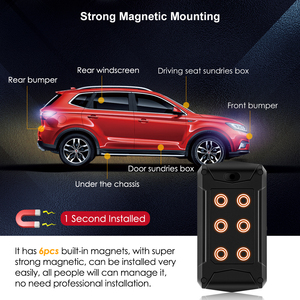Introduction to Temperature Sensor with GPS Tracker
A temperature sensor with GPS tracker is a cutting-edge device that combines environmental monitoring with geolocation capabilities. This innovative technology is designed to provide real-time data on both temperature fluctuations and exact location, making it essential for various industries such as logistics, agriculture, and healthcare. By integrating these two functionalities, businesses are able to ensure product integrity, enhance operational efficiency, and facilitate informed decision-making.
Types of Temperature Sensors with GPS Tracker
Temperature sensors with GPS trackers come in various models, each tailored to different applications and environments. Below are the primary types:
- Wireless Temperature Sensors - Utilizes Wi-Fi or cellular networks to transmit data.
- Wired Temperature Sensors - Directly connect to a control system for data collection.
- Portable Temperature Sensors - Designed for mobility, ideal for use in field applications.
- Fixed Temperature Sensors - Stationed at specific locations for continuous monitoring.
Applications of Temperature Sensor with GPS Tracker
The myriad applications of a temperature sensor with GPS tracker reflect its versatility and effectiveness across diverse sectors:
- Food and Beverage Industry: Ensures that temperature-sensitive products remain within safe limits during transportation and storage.
- Pharmaceutical Sector: Monitors conditions for vaccines and sensitive medications to maintain efficacy.
- Agriculture: Helps track soil temperature to optimize crop growth conditions.
- Industrial Applications: Maintains effective climate control in facilities where temperature variations could lead to product degradation.
Features and Advantages of Temperature Sensor with GPS Tracker
Temperature sensors with GPS tracking capabilities are equipped with robust features that make them invaluable tools for monitoring and management. The advantages they offer include:
- Real-Time Monitoring: Continuous temperature readings paired with location data ensure immediate awareness of any discrepancies.
- Data Logging: Automatic collection and storage of historical data for analytical purposes and compliance verification.
- Alerts and Notifications: Instant notifications about temperature excursions or location deviations allow for timely interventions.
- Energy Efficiency: Optimizes energy consumption by providing insights that help streamline operations.
- Enhanced Accountability: Traceability of products from origin to destination aids in quality assurance and customer trust.






















































































































































































































